I spent an enjoyable day out in London recently at The Future fabrics expo. It was a showcase of sustainable materials for the fashion and textile industry. The expo featured fabrics and materials from suppliers who are offering innovative solutions with a lower environmental footprint.
Eco textiles are something I’m keenly interested in and will share my research over the coming months as best I can.
I loved the denim dress at the entrance to the show, it set the tone for the whole event. Stylish and playful at the same time.
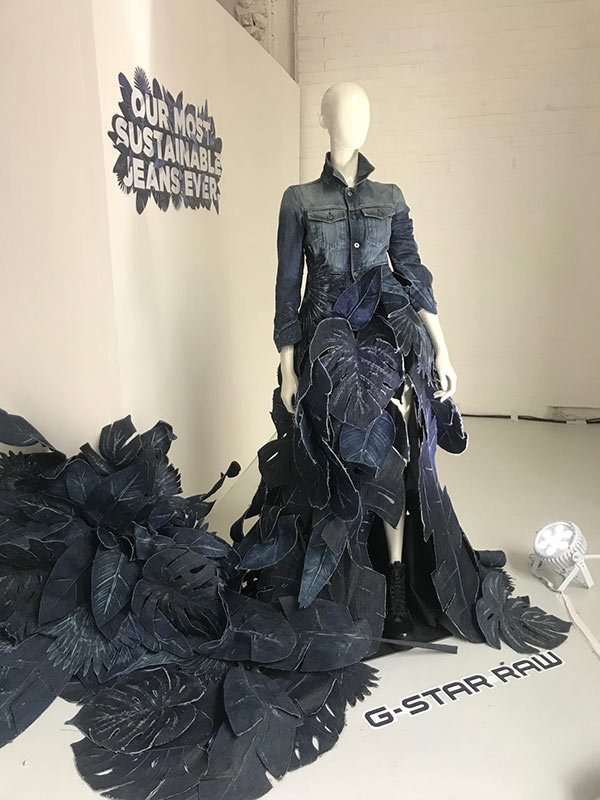
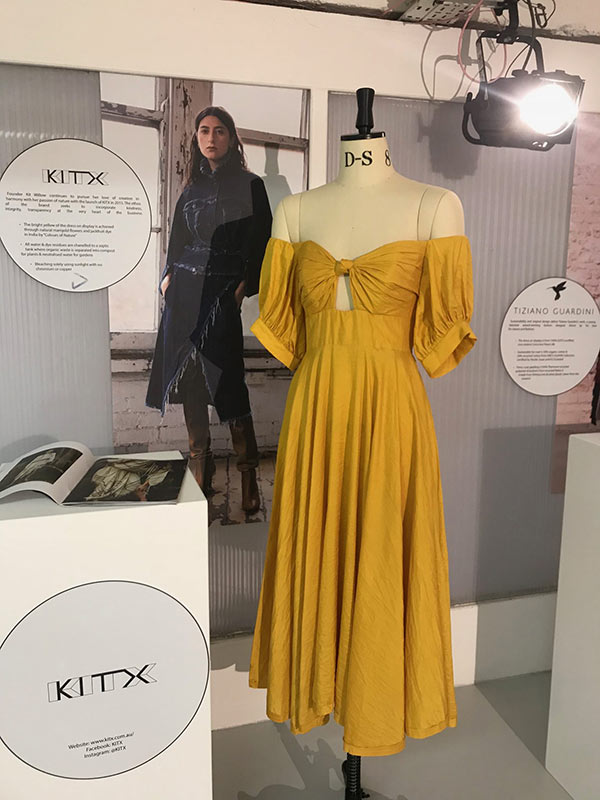
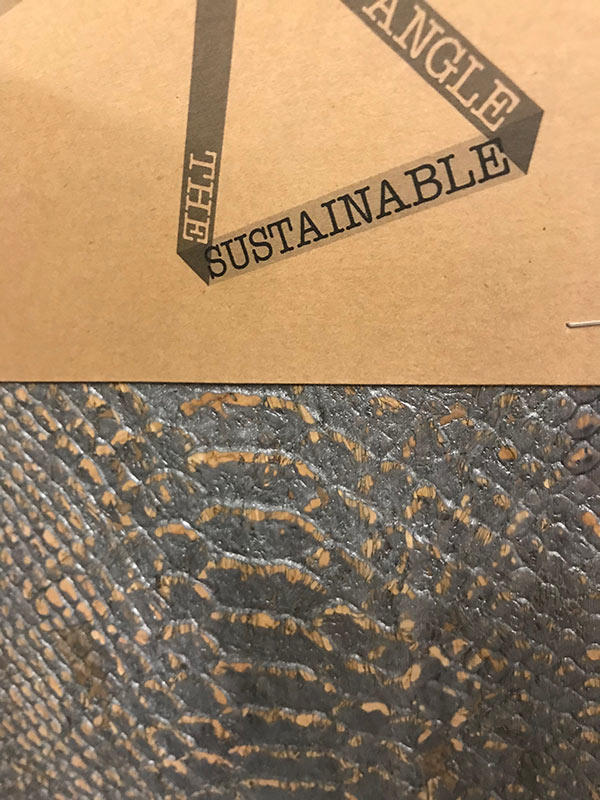
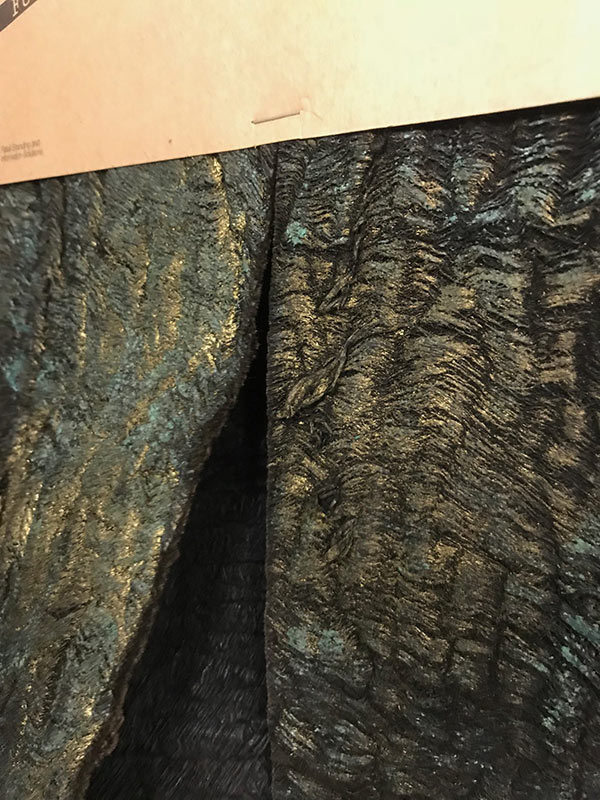
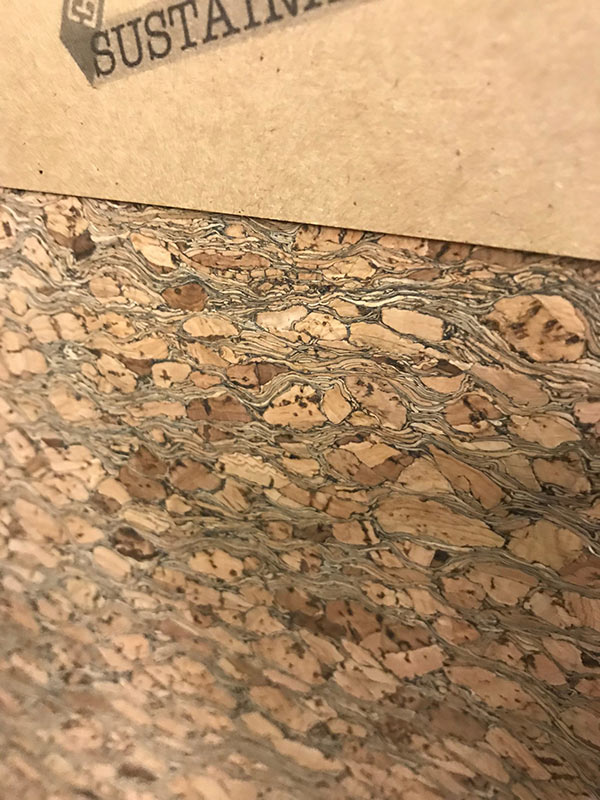
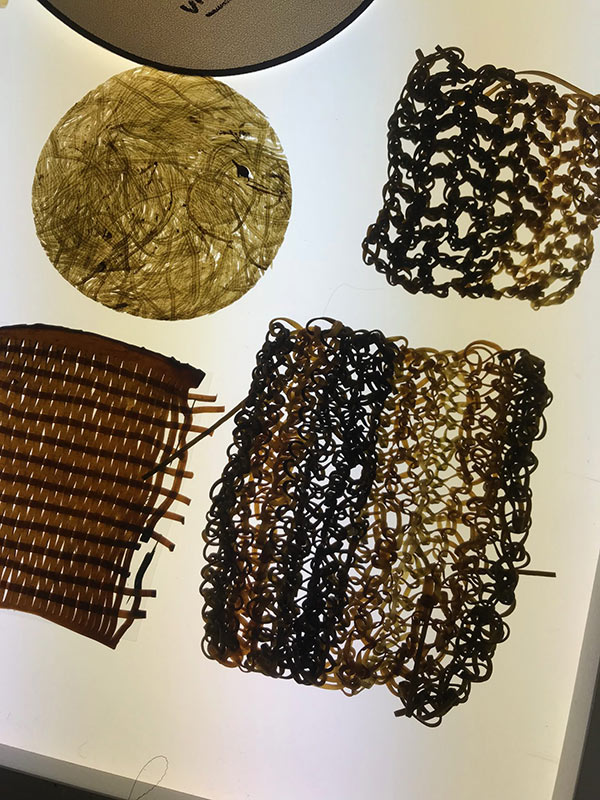
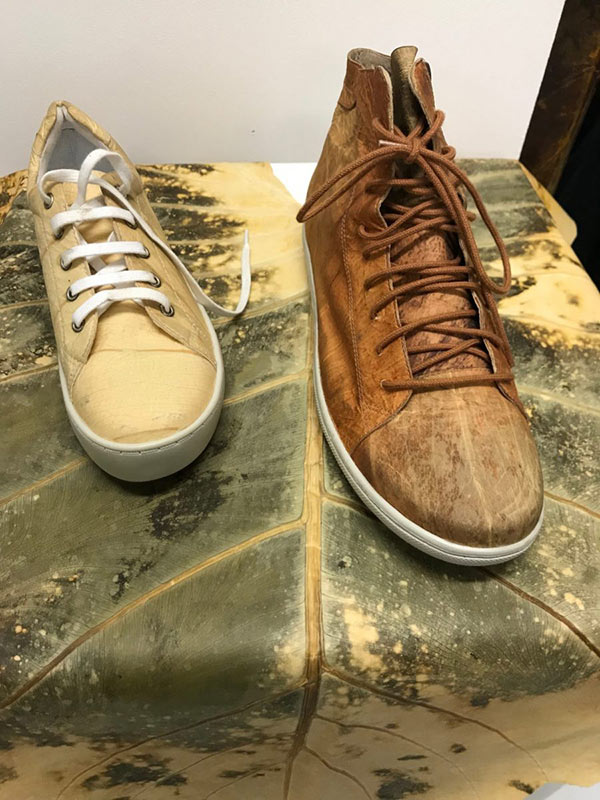
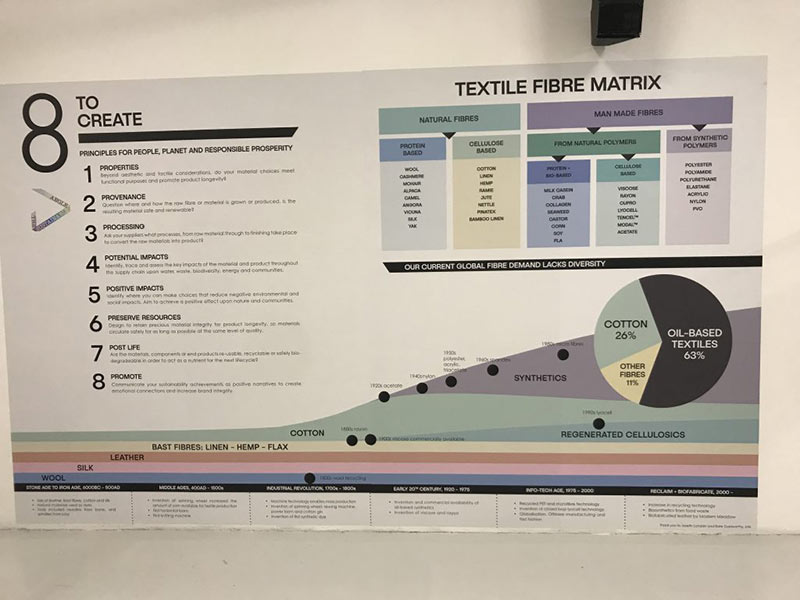
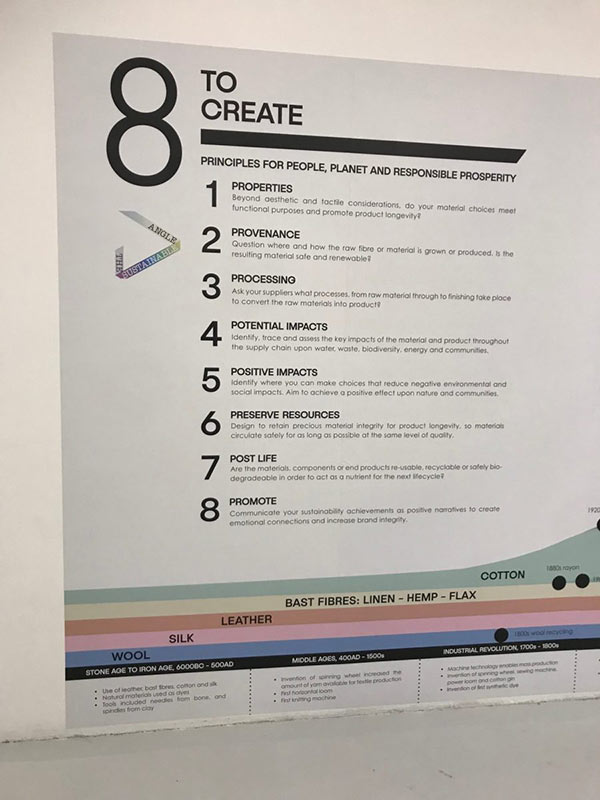
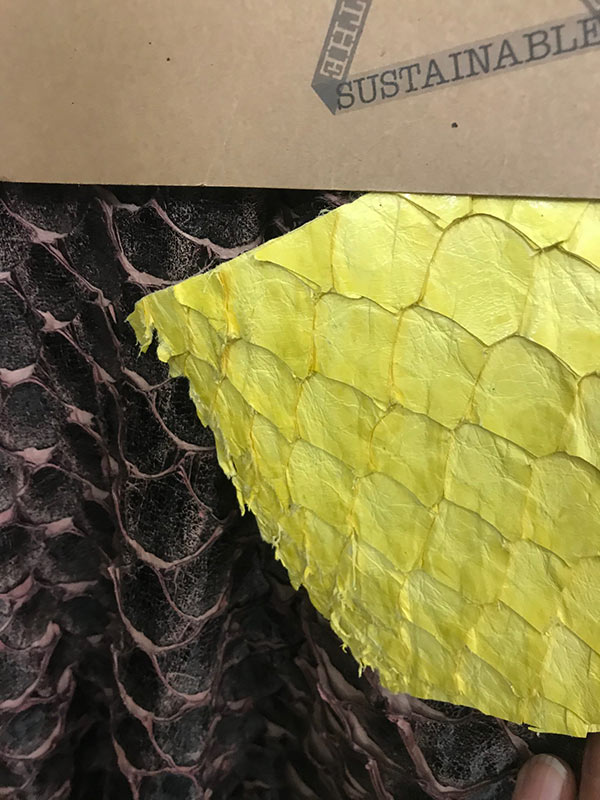
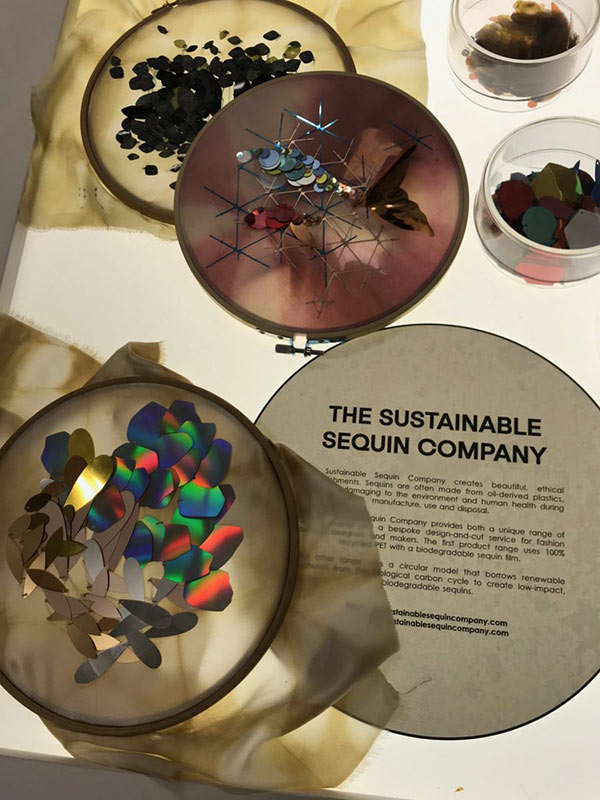
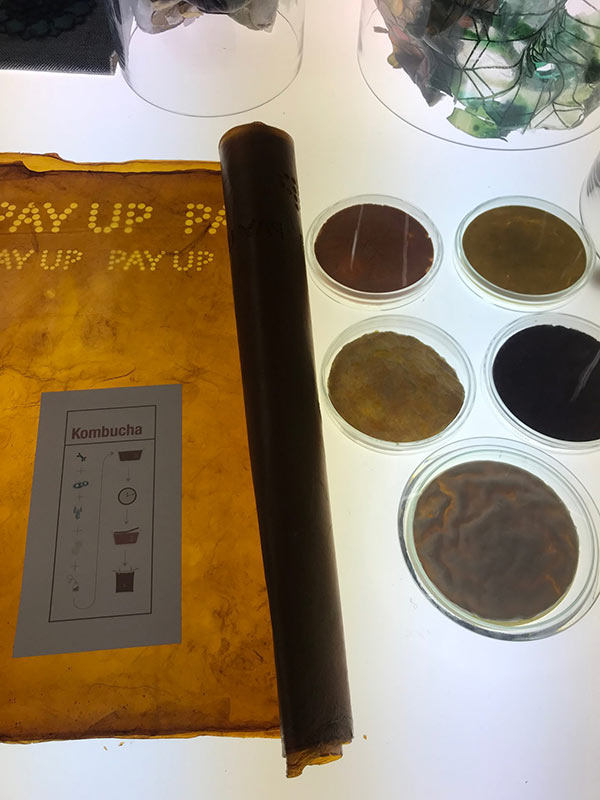

From what was on show, and what I’ve already researched it’s helpful to divide eco textiles into different categories
Organically grown crops. E.g. Cotton.
Made from sustainable crops. E.g. Bamboo
Low impact dyes.
Innovative from natural materials e.g. seaweed and leaf leathers
Recycled pre and post-consumer waste. Pre-consumer waste is off the factory floor, and post-consumer waste is shredded textiles and clothing.
One talk I attended was particularly inspiring. I listened to a Brazilian company talk about the sustainability of their Piracuru Amazonian fish skin leather. The leather is beautiful, the scales are huge. The leather feels soft and supple and the colours are well chosen. The Piracuru is the largest freshwater fish in the world.
The skin is a by product from the local fishing industry. Quotas are well regulated by the Brazilian Institute of Environment and resources.
This industry is particularly sustainable because it creates a valuable product from a waste product. It’s non-polluting as it’s a wild fish, not farmed fish which is an environmental and health disaster. The Picacuru skin industry protects the forests, wildlife and the people that live in them.
The payment for the skins goes to local women and their families supporting their lives, and their children to attend school. The money pays for them to be the guardians of their local environment.
There are serious concerns and issues around using animal products.
I read an interesting article here which goes into some of the ethical questions around using animal products versus non animal which can be petro chemical derivatives and extremely harmful to the environment. Polyester is the most commonly used oil based textile and takes 200+ years to decompose.

